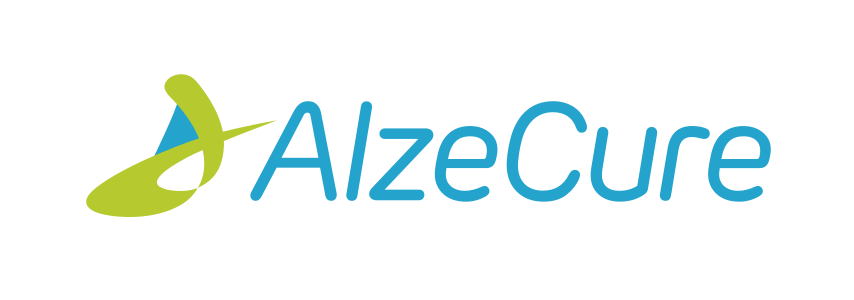STOCKHOLM, Sweden / ACCESSWIRE / March 28, 2023 / AlzeCure Pharma (STO:ALZCUR)(FRA:AC6) AlzeCure Pharma AB (publ) (FN STO:ALZCUR), a pharmaceutical company that develops a broad portfolio of small molecule candidate drugs for diseases affecting the central nervous system, with projects in both Alzheimer's disease and pain, today announced that the company's presentation at the Alzheimer's conference AD/PD 2023 is now available in its entirety on the company's website. The presentation contains new preclinical data with the drug candidate Alzstatin AC-0027875, which is being developed as a preventive and disease-modifying treatment of Alzheimer's disease.
"I am so happy that AlzeCure is pursuing a gamma-secretase modulator (GSM) project. There is so much genetic and biochemical data supporting this approach, which could be a true primary prevention drug against Alzheimer's", said Henrik Zetterberg, co-author and Professor at Sahlgrenska Institute, Gothenburg, Sweden.
The abstract, titled In vitro and in vivo profile of AC-0027875 (ACD680), a novel gamma-secretase modulator for the prevention and treatment of Alzheimer's disease, was presented Dr. Johan Sandin, CSO at AlzeCure and co-author, and includes new pre-clinical data with ACD680, the recently selected drug candidate in AlzeCure's research platform Alzstatin®.
The presentation includes new preclinical results with AC-0027875, AlzeCure's potent small molecule GSM. The candidate drug reduces the production of toxic Aβ42, which creates harmful plaques in the brain, both in human cell systems and in vivo models, where it can reduce levels by over 50%.
The substance also shows a very high concentration in the brain, which is a big advantage for these small molecule drugs that can more easily cross the blood-brain barrier. GSM represent a promising class of Aβ42-lowering anti-amyloidogenic agents for the treatment of Alzheimer's disease and exhibit several key properties that make them suitable as both a preventive or disease-modifying treatment of the disease.
"AC-0027875 greatly reduces the amount of harmful Aβ42 in our models, and a gamma-secretase modulator such as this is particularly well suited for early, preventive treatment", said Johan Sandin, CSO at AlzeCure Pharma.
"With the progress we have made in Alzstatin with our new molecule and the increased interest in the field, I am positive about the continued development work and out-licensing discussions as we see the opportunity to both complement potential antibody therapy, but also to potentially prevent patients from developing Alzheimer's", said Martin Jönsson, CEO of AlzeCure Pharma.
The other co-authors of the abstract are Dr. Märta Dahlström, Dr. Maria Backlund, Veronica Lidell, Azita Rasti, Sanja Juric, Dr. Magnus Halldin, Director of Discovery DMPK & Safety assessment, Dr. Pontus Forsell, Head of Discovery & Research på AlzeCure and Dr. Gunnar Nordvall, Director of Medicinal Chemistry på AlzeCure.
The abstract and the presentation are available on AlzeCure's website (https://www.alzecurepharma.se/en/presentations-and-interviews/).
For more information, please contact
Martin Jönsson, CEO
Tel: +46 707 86 94 43
[email protected]
About AlzeCure Pharma AB (publ)
AlzeCure® is a Swedish pharmaceutical company that develops new innovative drug therapies for the treatment of severe diseases and conditions that affect the central nervous system, such as Alzheimer's disease and pain - indications for which currently available treatment is very limited. The company is listed on Nasdaq First North Premier Growth Market and is developing several parallel drug candidates based on three research platforms: NeuroRestore®, Alzstatin® and Painless.
NeuroRestore consists of two symptomatic drug candidates where the unique mechanism of action allows for multiple indications, including Alzheimer's disease, as well as cognitive disorders associated with traumatic brain injury, sleep apnea and Parkinson's disease. The Alzstatin platform focuses on developing disease-modifying and preventive drug candidates for early treatment of Alzheimer's disease and comprises two drug candidates. Painless is the company's research platform in the field of pain and contains two projects: ACD440, which is a drug candidate in the clinical development phase for the treatment of neuropathic pain, and TrkA-NAM, which targets severe pain in conditions such as osteoarthritis. AlzeCure aims to pursue its own projects through preclinical research and development through an early clinical phase, and is continually working on business development to find suitable outlicensing solutions with other pharmaceutical companies.
FNCA Sweden AB is the company's Certified Adviser. For more information, please visit www.alzecurepharma.se.
About Alzstatin®
AlzeCure's disease-modifying research platform, Alzstatin, consisting of disease-modifying and preventive drug candidates, focuses on reducing the production of toxic amyloid beta (Aβ), such as Aβ42, in the brain. Aβ42 plays a key pathological role in Alzheimer's and begins to accumulate in the brain years before clear symptoms develop. The drug candidates in the Alzstatin platform modulate the function of the enzyme gamma secretase. Gamma secretase acts like a pair of scissors and cuts Aβ42 out from a longer protein known as APP. The sticky Aβ42 clumps together giving rise to the amyloid plaque so typical of Alzheimer's disease. The candidates in the Alzstatin platform affect enzyme function so that it instead cuts out shorter forms of the Aβ peptide, Aβ37 and Aβ38, which in addition to them not being sticky and not forming aggregates, also have a restrictive effects on Aβ42 aggregates already formed. This means the drug candidates in the Alzstatin platform have two separate but synergistic effects that together contribute to a stronger anti-amyloidogenic - and thus more potent - disease-modifying effect. This specific mechanism of action differentiates it from biological therapies, e.g. antibodies. Moreover, small molecules such as Alzstatin, have several other advantages, including easy and non-invasive administration as tablets or capsules. Small molecules will also generally pass more readily through the blood-brain barrier to reach its target, the brain.
Image Attachments
Martin Jönsson CEO And Johan Sandin CSO AlzeCure Pharma
Attachments
SOURCE: AlzeCure Pharma




